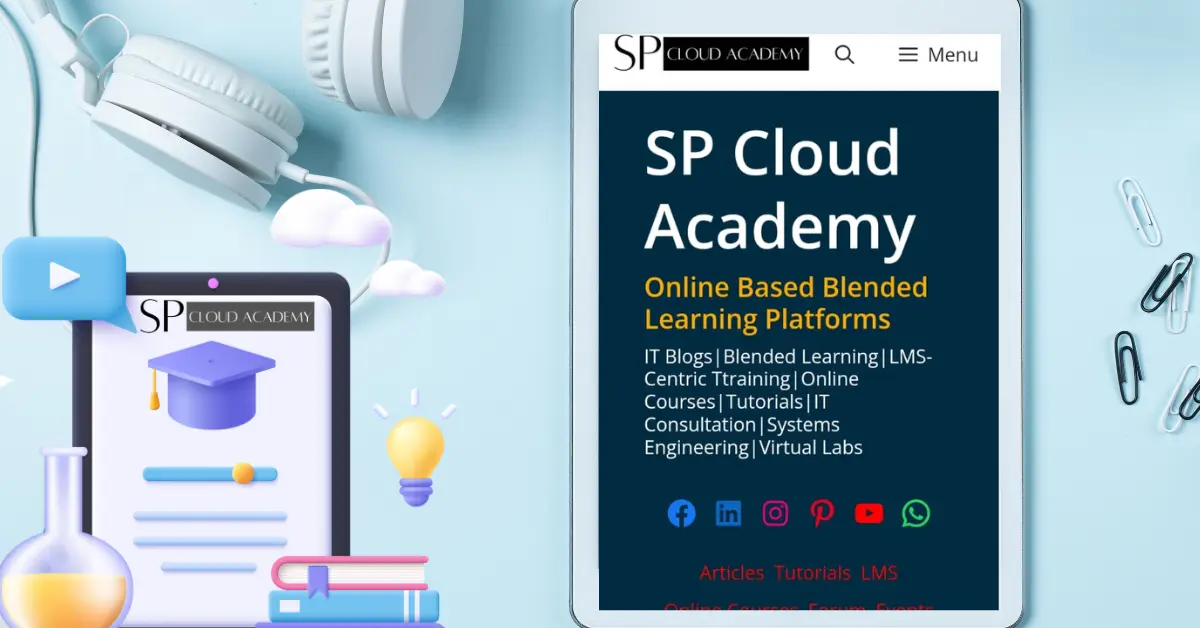When it comes to improving your writing, the right words make all the difference. But finding the perfect word isn’t always easy. Whether you’re writing essays, blog posts, novels, or just improving everyday communication, online dictionaries are your best friend. Beyond definitions, some dictionaries offer unique tools like thesaurus features, idioms, visual connections, and contextual examples, which can unlock new layers of creativity and clarity.
Most writers rely on mainstream dictionaries like Oxford or Merriam-Webster, but there are hidden gems—lesser-known dictionaries that can help you do much more than look up word meanings. From enriching vocabulary to solving creative blocks, these specialized tools can make writing more engaging and polished.
In this article, we’ll introduce 10 online dictionaries you may not know about but should definitely add to your toolkit. Let’s explore how they can boost your writing skills and help you become a more effective communicator.
Table of Contents
- Why Writers Need More Than Just a Basic Dictionary
- Top 10 Online Dictionaries You Didn’t Know About
- How to Pick the Best Dictionary for Your Writing Goals
- Conclusion
- FAQs
Why Writers Need More Than Just a Basic Dictionary
At first glance, dictionaries seem straightforward—you look up a word, find the meaning, and move on. But good writing requires more than just knowing a definition. Clarity, flow, and creativity are key components of great writing, and choosing the wrong word or phrase can disrupt your message. This is where specialized dictionaries come into play.
Many of these online tools go far beyond basic meanings, providing features like:
- Synonyms and antonyms to replace repetitive words
- Etymology and origins to help you understand a word’s deeper meaning
- Collocations and idioms to write naturally and fluently
- Contextual examples to use words accurately
- Pronunciation guides for public speakers or ESL learners
If you only rely on one traditional dictionary, you might miss out on these tools, which can refine and elevate your writing. Below are 10 online dictionaries that will help you become a more versatile writer.
Top 10 Online Dictionaries You Didn’t Know About
1. WordHippo
WordHippo is a one-stop shop for writers looking for more than just definitions. It offers synonyms, antonyms, rhymes, translations, and more. One of the standout features is the rhyme finder, which is perfect for poets, lyricists, or anyone working on creative projects. If you’re ever stuck on a word, WordHippo can suggest alternatives that match the tone and style you’re aiming for.
- Best Features: Synonyms, antonyms, word forms, and rhymes
- Why Writers Love It: Helps avoid repetition with its extensive synonym search
2. The Free Dictionary
The Free Dictionary is not just a dictionary—it’s a multilingual encyclopedia, thesaurus, and idiom guide all rolled into one. Writers benefit from its in-depth articles and specialized dictionaries (such as legal or medical dictionaries). The platform also provides daily quizzes and a “Word of the Day” feature to help users build vocabulary consistently.
- Best Features: Idiom finder, specialized dictionaries, and translation tools
- Why Writers Love It: Offers real-world examples along with definitions
3. Urban Dictionary
Need to stay updated on the latest slang, memes, or internet trends? Urban Dictionary has your back. While it may not be suitable for formal writing, it’s essential for writers working on conversational content, scripts, or dialogue. It’s also a fun resource to explore when you need to add humor to your writing.
- Best Features: User-generated definitions and cultural context
- Why Writers Love It: Great for informal writing and understanding current slang
4. Power Thesaurus
Power Thesaurus is a crowd-sourced thesaurus where writers, editors, and language enthusiasts contribute. This means you get fresh and dynamic content—not just words from a static thesaurus. It’s ideal for finding unique synonyms or antonyms, especially for creative pieces where the right word choice makes all the difference.
- Best Features: Real-time updates, example sentences, and antonyms
- Why Writers Love It: Offers more varied word choices than traditional thesauruses
5. Collins Dictionary
Collins Dictionary stands out by offering grammar advice, word usage tips, and even word history alongside definitions. It’s perfect for academic writers or students who need precise word meanings and grammatical support. Additionally, it offers insight into British and American English variations, making it a helpful resource for international writers.
- Best Features: Grammar guides, word origins, and usage examples
- Why Writers Love It: Great for academic and professional writing
6. Linguee
For writers working across multiple languages, Linguee is a game-changer. It combines a dictionary with translation tools and provides contextual examples from real sources. Whether you’re translating a text or writing in a non-native language, Linguee ensures you use the most appropriate words.
- Best Features: Contextual translations and real-world examples
- Why Writers Love It: Excellent for multilingual writers
7. Cambridge Dictionary
Known for its easy-to-understand definitions and grammar tools, Cambridge Dictionary is a must-have for ESL learners and writers looking for clear explanations. It also offers British and American pronunciation guides to help users master spoken English.
- Best Features: Grammar advice, language quizzes, and pronunciation guides
- Why Writers Love It: Ideal for non-native English speakers
8. Visual Thesaurus
If you’re a visual learner, the Visual Thesaurus is perfect for you. Instead of giving a simple list of synonyms, it displays interactive word maps that show relationships between words. This is a fantastic tool for creative brainstorming sessions when you need inspiration.
- Best Features: Interactive word maps and multiple language support
- Why Writers Love It: Helps uncover new word associations
9. Merriam-Webster
Merriam-Webster has stood the test of time, evolving from print to digital. Along with precise definitions, it offers usage notes, idioms, and the Word of the Day feature to expand your vocabulary daily. It’s also known for its quizzes, which are both entertaining and educational.
- Best Features: Idioms, quizzes, and daily vocabulary building
- Why Writers Love It: A reliable resource for everyday writing
10. Macmillan Dictionary
Macmillan Dictionary goes beyond definitions, offering collocations, phrases, and idioms to help writers craft more natural-sounding sentences. It also regularly updates its content with new words and trends, keeping you ahead of the curve.
- Best Features: Collocations and idiomatic expressions
- Why Writers Love It: Great for creative and conversational writing
How to Pick the Best Dictionary for Your Writing Goals
With so many dictionaries available, choosing the right one can feel overwhelming. Here are a few tips:
- Consider Your Writing Style:
- Academic writing: Collins or Merriam-Webster
- Creative writing: WordHippo or Visual Thesaurus
- Look at the Features:
- Need a thesaurus? Try Power Thesaurus
- Need slang definitions? Urban Dictionary is your go-to
- Think About Frequency:
- Use Linguee if you regularly work with multiple languages
- Use Cambridge if you’re an ESL writer
- Match Your Learning Style:
- Prefer visuals? Go for Visual Thesaurus
- Prefer detailed explanations? Try The Free Dictionary
Conclusion
Online dictionaries are essential tools for enhancing your writing skills. Whether you’re looking for synonyms to avoid repetition, understanding idioms to sound more fluent, or keeping up with modern slang, these 10 dictionaries offer something for everyone. Bookmark a few of them, experiment, and see how they elevate your writing. With these resources, every word you write can have impact, clarity, and style.
FAQs
- Which online dictionary is best for creative writing?
- WordHippo and Visual Thesaurus offer features like rhymes and word connections that help with creative writing.
- Can I use Urban Dictionary for academic writing?
- No, Urban Dictionary is better suited for informal, conversational content or understanding modern slang.
- Which dictionary offers the best translation tools?
- Linguee is highly recommended for translations, as it provides contextual examples from real-world sources.
- What is the difference between a thesaurus and a dictionary?
- A dictionary provides definitions, pronunciation, and usage, while a thesaurus focuses on synonyms and antonyms to enrich vocabulary.
- Is there a dictionary that offers word collocations?
- Macmillan Dictionary provides excellent collocation examples to help you write more naturally.
- Which dictionaries offer tools for ESL learners?
- Cambridge Dictionary is ideal for ESL learners, with grammar tips and pronunciation guides for both British and American English.
- Can Visual Thesaurus help with brainstorming?
- Yes, its interactive word maps make it a great tool for creative brainstorming and uncovering word associations.
- What is the best dictionary for daily vocabulary building?
- Merriam-Webster’s “Word of the Day” feature helps you build vocabulary consistently.
- Which online dictionary offers grammar tips?
- Both Collins and Cambridge Dictionaries provide grammar advice alongside word definitions.
- How does Power Thesaurus differ from a traditional thesaurus?
- Power Thesaurus is crowd-sourced, providing dynamic word suggestions updated in real-time by users.
- What’s the best tool for understanding idioms?
- The Free Dictionary and Macmillan Dictionary offer comprehensive idiom collections with examples.
- Are there dictionaries that provide both American and British English versions?
- Yes, Collins and Cambridge Dictionaries offer variations for both American and British English.
- What are the benefits of using an interactive dictionary?
- Interactive dictionaries like Visual Thesaurus help you see how words connect, which can spark new ideas for writing.
- Which dictionary is good for poets and lyricists?
- WordHippo’s rhyme finder is perfect for poets, songwriters, and lyricists.
- Do any of these dictionaries provide pronunciation help?
- Cambridge Dictionary offers both American and British pronunciations, making it a helpful tool for ESL learners and public speakers.






